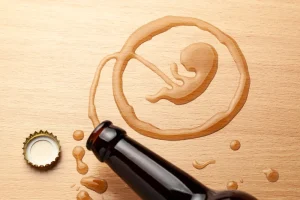
In particular, she’s committed to helping decrease stigma around mental health issues. It’s common to have a difficult time when making big changes, but good self-care practices can help you manage overwhelming feelings and take care of your mind and body. Becoming more aware of your alcohol triggers and reasons for drinking can help you plan ways to help manage the urge to drink. Maybe you don’t think you depend on alcohol exactly, but you still wonder whether you might be drinking too much. As such, there is only limited guidance available about the best ways to taper. Sunnyside provides a simple but structured approach to help you drink more mindfully.

Why Alcohol Withdrawal Occurs
You should plan to taper for between three and seven days depending on how much you’re used to drinking. Slowly reduce the amount of alcohol you consume each day until you reach sobriety. If you begin to experience serious withdrawal symptoms, drink enough to make the symptoms subside. If you’ve been how to taper off alcohol at home unable to quit on your own, you should consider attending an alcohol rehab center. It teaches you healthy ways to cope with stress and techniques for overcoming the underlying causes of alcohol addiction. Alcohol withdrawal symptoms can range from being a slight nuisance to extremely uncomfortable.
Challenges of Tapering Off Alcohol
Tapering can be a more manageable method of cessation for those who might find abrupt discontinuation overwhelming or medically unsafe. For people with moderate to severe alcohol addiction, utilizing an alcohol detox center is always the safest option. Alcohol detox centers have professionals trained to recognize and treat complications caused by alcohol withdrawal. Because alcohol withdrawal symptoms can sometimes be unpredictable and may escalate quickly, having an on-site medical team that can quickly intervene is the safest way to quit heavy drinking. In alcohol detox treatment, medical providers work to safely remove alcohol from your body so that you don’t experience painful or uncomfortable withdrawal.
Can You Stop Drinking Alcohol Cold Turkey?
Tapering is also a strategy used by people with a substance or alcohol use disorder (AUD). However, improper tapering could lead to relapse, overdose, and severe health consequences. Establishing new habits and routines, and dealing with the underlying causes of your drinking habits, are essential to lasting recovery. Alcohol also changes your brain chemistry, which can result in higher levels of anxiety and depression for the first several months. Finally, just because you’ve gotten past the withdrawal phase doesn’t mean you won’t continue to face psychological aspects of addiction—including alcohol cravings and drinking triggers. Substituting a prescription drug for alcohol should only happen with the help of a medical professional.
Articles Related to Alcoholism
- Comprehensive care includes education on withdrawal, maintaining a low-stimulation environment, and nutritional support.
- It’s possible to develop a better relationship with alcohol and make more mindful, informed choices about drinking without total sobriety.
- If don’t have much of an appetite, you may want to take a multivitamin or drink a beverage high in electrolytes, such as a sports drink.
- At Orlando Recovery Center Drug and Alcohol Rehab, we offer many alcohol addiction treatment options led by train medical professionals.
Some individuals may benefit from setting rewards for reaching these goals to maintain motivation. Ultimately, the taper schedule should be developed with a healthcare professional to tailor the approach to the individual’s https://ecosoberhouse.com/article/alcohol-and-aging-does-alcohol-make-you-look-older/ unique needs and circumstances. Ultimately, the purpose of alcohol tapering is to provide a safer and more controlled pathway toward sobriety, to minimize withdrawal symptoms and to reduce the likelihood of relapse.
- Detox doesn’t treat addiction, which is a disease characterized by compulsive behaviors, such as chronic alcohol use.
- At times, it’s easy to forget why you entered recovery in the first place.
- Detoxing at home usually takes longer because you should be cautious to avoid serious complications.
- Getting professional treatment and long-term support are two of the most valuable strategies for avoiding relapse.
- Ask friends or family to check on you throughout the detox process.
- You could speak to your GP or a member of their team, or there are a number of national alcohol support services that you can confidentially self-refer to for advice and support.
Overview of Alcohol Dependence and Its Consequences
